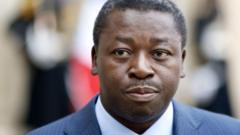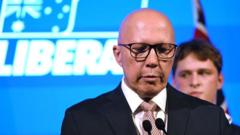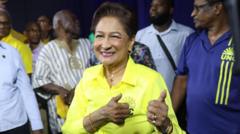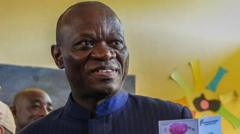Amid constitutional changes eliminating presidential elections, Togo's longest-serving leader appears set for extended power beyond term limits.
Togo's New Political Structure Could Grant Gnassingbé Indefinite Rule

Togo's New Political Structure Could Grant Gnassingbé Indefinite Rule
Faure Gnassingbé's ascension to President of the Council of Ministers raises concerns over lifetime leadership in Togo.
Togo's political landscape has shifted dramatically with the recent appointment of Faure Gnassingbé as the "President of the Council of Ministers." This newly established role is the pinnacle of the executive branch of government and notably lacks any term limits. The change comes on the heels of significant constitutional amendments that have effectively abolished presidential elections in favour of a parliamentary framework. Critics assert that this reform enables Gnassingbé to maintain power indefinitely.
The Gnassingbé family has a long history in Togo, having governed for an extensive 58 years. Faure stepped into the role of president in 2005, succeeding his father, Gnassingbé Eyadéma, who presided over the nation for approximately forty years. The recent constitutional reforms have been characterized by opponents as an "institutional coup d'état." Despite public dissent leading to a temporary halt on some proposed modifications, the government has now proceeded with establishing Gnassingbé's new position.
Upcoming municipal elections in July will be the first to occur under this revised constitutional framework, which transitions away from a traditional presidential system to a parliamentary one. While the role of president is now largely ceremonial, political analysts suggest that Gnassingbé's authority is more firmly cemented with his new title as council president. His political party, the Union for the Republic, solidified its dominance in last year’s parliamentary elections, capturing an overwhelming majority with 108 out of 113 seats in the National Assembly.



















